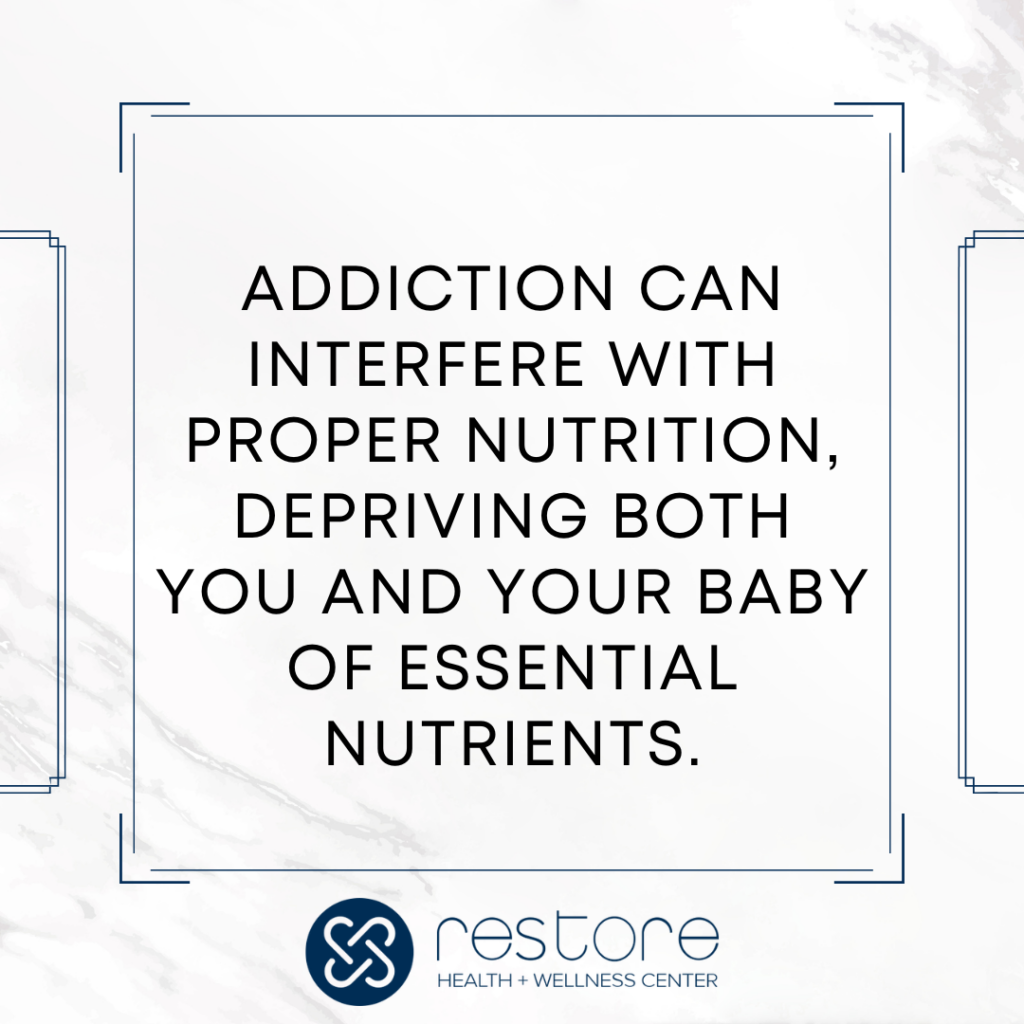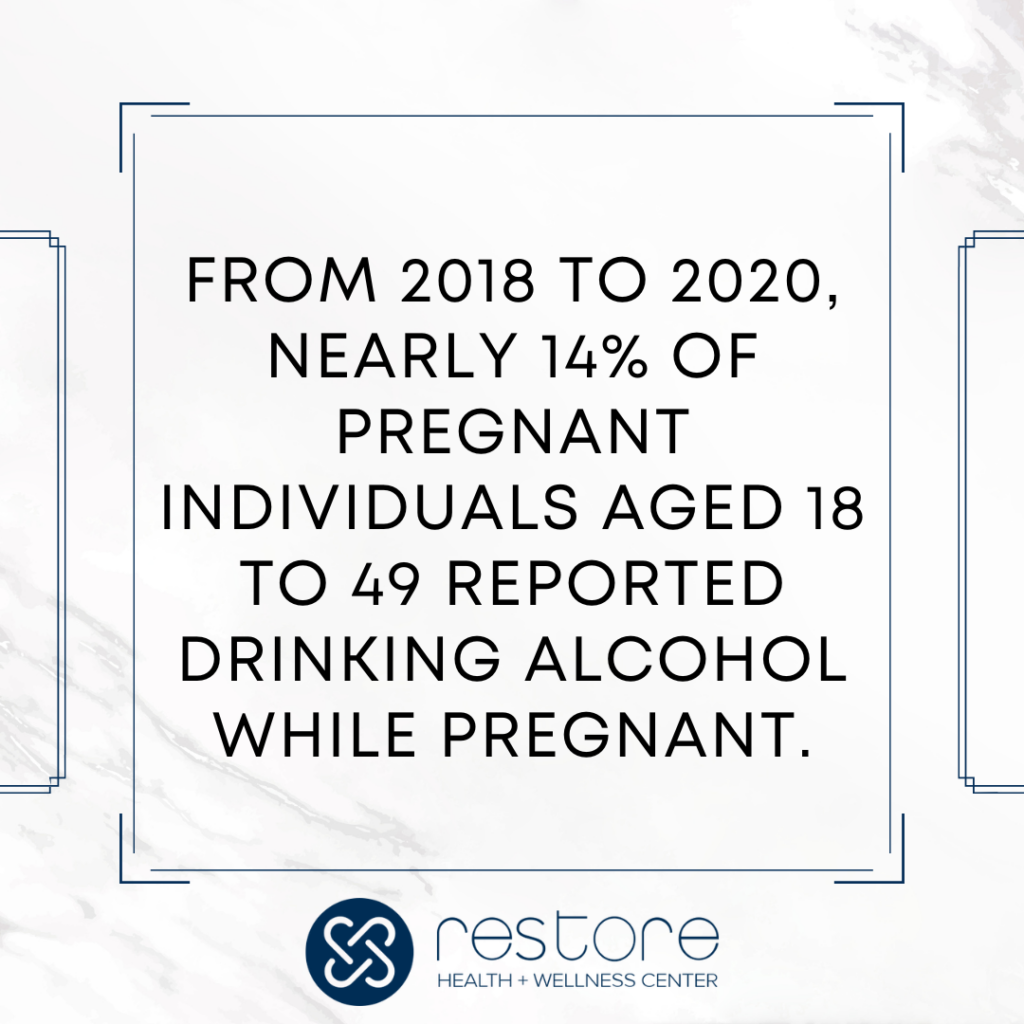
Finding out you’re pregnant can stir up many emotions: joy, fear, hope, and uncertainty, among others. But if you’re also struggling with addiction while pregnant, these emotions can feel heavier. Maybe you’re scared for your baby, ashamed of your struggles, or worried about how others will see you. If this sounds familiar, take a deep breath. You’re not alone, and there is hope.
Battling with alcoholism or any substance use while pregnant doesn’t mean you’ve failed. And in tough situations like this, seeking help is an act of love for yourself and the little life growing inside you.
In this blog, we’ll help you navigate through this experience. We’ll provide essential guidance, offering you practical steps and compassionate advice.

Addiction During Pregnancy
Alcohol and drug addiction in pregnant women comes with unique and often overwhelming challenges. Pregnancy alone brings physical and emotional changes. So, when it’s combined with substance use, it can amplify feelings of stress, guilt, and isolation.
For many women, habits like binge drinking or drug use might have started as a way to cope, but during pregnancy, these behaviors can carry significant risks.
Here’s a closer look at the physical and emotional toll it can take on you as a mother:
- Nutritional Deficiencies. Addiction can interfere with proper nutrition, depriving both you and your baby of essential nutrients.
- Increased Risk of Complications. You also face a higher risk of miscarriage, premature labor, and preeclampsia.
- Weakened Immune System. Addiction can reduce your body’s ability to fight infections, making illnesses during pregnancy more severe.
- Guilt and Shame. You may feel immense guilt about your addiction, especially due to the societal stigma around addiction.
- Heightened Anxiety and Depression. The combination of addiction and the emotional weight of pregnancy can increase your risk of mental health struggles.
- Isolation. Fear of judgment can cause you to hide your struggles, cutting off critical support systems.
Keep in mind that addiction doesn’t just affect you.
When your baby gets exposed to substances during pregnancy, it can affect their development and health in ways that may feel overwhelming. Risks like low birth weight, premature birth, developmental delays, and long-term health issues become real concerns.

Statistics on Substance Abuse While Pregnant
Addiction while pregnant is a complex and growing issue. And the numbers are here to back it. Here are some key substance abuse while pregnant statistics that shed light on this troubling reality:
- From 2010 to 2017, the number of women with opioid-related diagnoses at delivery hospitalization increased by 131%.
- From 2018 to 2020, nearly 14% of pregnant individuals aged 18 to 49 reported drinking alcohol while pregnant.
- 4.8% of pregnant women aged 15 to 44 admitted to binge drinking (consuming four or more drinks on a single occasion) within the past month.
The rise in substance use during pregnancy reflects the impact of the opioid epidemic, societal norms around alcohol, and systemic barriers to care.
The opioid crisis has led to a substantial increase in hospitalizations among pregnant women, with many lacking access to specialized treatment. Meanwhile, persistent binge drinking highlights the influence of cultural pressures and the stress of managing addiction alone.
Unfortunately, fear of judgment, legal consequences, and limited care options often prevent women from seeking help. This only delays critical intervention.
All these things underscore that compassionate care is utterly crucial for both mothers like you and babies. Offering judgment-free support and tailored care can empower you to seek the help you need. Ultimately, it helps improve outcomes for both you and your little one. So, always bear in mind that with the right resources and interventions, change is possible.

Effects on Newborns
Now, you may wonder: What happens when a baby is born addicted to drugs?
Babies exposed to substances during pregnancy, such as opioids, may develop Neonatal Abstinence Syndrome (NAS). This condition occurs when the baby goes through withdrawal after birth, causing symptoms like excessive crying, feeding difficulties, tremors, and breathing problems. Take note: NAS requires immediate medical attention to stabilize the newborn and manage their discomfort.
Beyond the immediate symptoms, other short-term health consequences of addiction while pregnant can also be severe. These include low birth weight, premature birth, respiratory complications, and feeding issues. Babies with NAS often require longer hospital stays, specialized care, and close monitoring.
Long-term effects can also emerge. However, it will depend on the substance and duration of exposure. These may include:
- Developmental delays
- Behavioral problems
- Learning difficulties
- An increased risk of chronic health conditions
Similarly, if your baby is born while you’re struggling with addiction or coping with binge drinking during pregnancy, they will be at risk for fetal alcohol spectrum disorders (FASD). This condition can lead to lifelong challenges with physical, cognitive, and emotional development.
Seeking Help and Support
If you’re struggling with addiction while pregnant, it’s important to know that help is available. And seeking it is one of the strongest, most loving things you can do for yourself and your baby.
For example, you can find specialized programs designed just for moms like you. Whether it’s therapy, medical care, or addiction treatment, resources are available to understand the unique challenges you’re facing. Additionally, there are Los Angeles rehab options that offer tailored services for pregnant women. Often, these options combine addiction recovery with prenatal care and emotional support.
Seeking treatment benefits both you and your baby. For you, it means better health, stronger coping skills, and support from people who want to see you succeed. For your baby, it increases the chances of a healthy pregnancy, safer delivery, and a brighter start to life.

Conclusion
Addiction while pregnant may be a difficult challenge, but it’s a battle that you can fight alongside compassionate experts and the people in your support system.
In this battle, the first step is understanding the risks and consequences for you and your baby. These include health complications like low birth weight, premature delivery, developmental delays, and conditions such as NAS and FASD. Then, it will be a matter of taking action.
Fortunately, help is accessible. Specialized programs, like what we offer at Restore Health and Wellness Center, provide tailored care for pregnant women like you who are battling addiction. Looking for such programs? Contact our team today and give your baby the best possible start in life.




